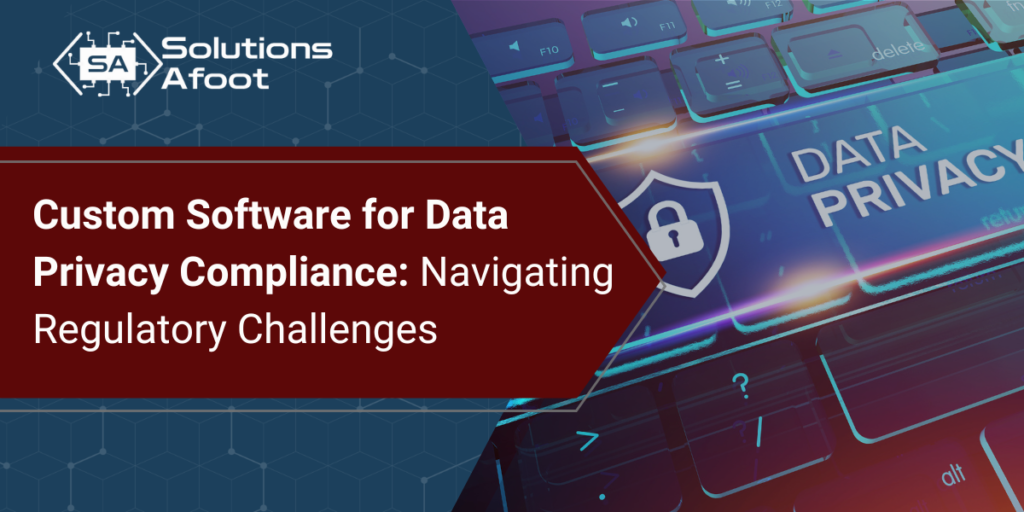Custom Software for Data Privacy Compliance: Navigating Regulatory Challenges

How Custom Software Can Ensure Data Privacy Compliance: A Guide for Businesses
In an era where data privacy is paramount, businesses face increasing pressure to comply with regulations such as the General Data Protection Regulation (GDPR) and the California Consumer Privacy Act (CCPA). Failure to comply can result in hefty fines and damage to reputation. Custom software solutions can play a crucial role in helping businesses navigate these regulations and ensure data protection and privacy. In this article, we’ll explore how custom software can help businesses comply with GDPR, CCPA, and similar regulations.
Understanding GDPR, CCPA, and Data Privacy Regulations
GDPR, enforced in the European Union, aims to protect the personal data of EU citizens. It imposes strict rules on how businesses collect, store, and process personal data. Similarly, CCPA, applicable in California, gives consumers more control over the personal information that businesses collect about them.
Key Features of Custom Software for Data Privacy Compliance
1. Data Mapping and Inventory: Custom software can help businesses map and inventory personal data to ensure compliance with regulations’ data minimization principles. It can track data flows, identify sensitive data, and monitor data access.
2. Consent Management: Custom software can streamline consent management processes, ensuring that businesses obtain and document user consent for data processing activities. It can also manage consent preferences and provide mechanisms for users to withdraw consent.
3. Data Subject Rights Management: Custom software can facilitate the exercise of data subject rights, such as the right to access, rectification, erasure, and data portability. It can automate these processes, ensuring timely responses to data subject requests.
4. Data Security Measures: Custom software can implement robust data security measures, such as encryption, pseudonymization, and access controls, to protect personal data from unauthorized access or breaches.
5. Privacy by Design and Default: Custom software can incorporate privacy by design and default principles, ensuring that data protection measures are built into the software from the outset and that the highest privacy settings are the default.
6. Auditing and Monitoring: Custom software can provide auditing and monitoring capabilities to track compliance with data privacy regulations. It can generate reports and alerts for non-compliance issues, enabling businesses to take corrective action promptly.
Custom software can be a powerful tool for businesses seeking to comply with data privacy regulations such as GDPR and CCPA. By implementing custom software solutions tailored to their specific needs, businesses can ensure data protection and privacy, mitigate risks, and build trust with their customers. If you can benefit from any of these key features and would like a complimentary exploratory consultation with our team at Solutions Afoot, let’s chat! Book a call HERE!
